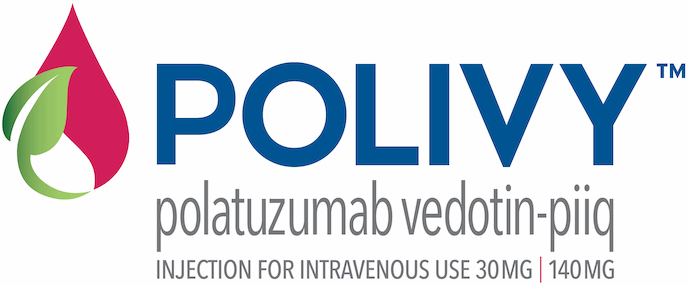Possible serious side effects
Everyone reacts differently to POLIVY therapy, so it’s important to know what the side effects are. Some people who have been treated with POLIVY have experienced serious to fatal side effects. Your doctor may stop or adjust your treatment if any serious side effects occur. Be sure to contact your healthcare team if there are any signs of these side effects.
- Nerve problems in your arms and legs: This may happen as early as after your first dose and may worsen with every dose. Your doctor will monitor for signs and symptoms, such as changes in your sense of touch, numbness or tingling in your hands or feet, nerve pain, burning sensation, any muscle weakness, or changes to your walking pattern
- Infusion-related reactions: You may experience fever, chills, rash, breathing problems, low blood pressure, or hives within 24 hours of your infusion
- Low blood cell counts: Treatment with POLIVY can cause severe low blood cell counts. Your doctor will monitor your blood counts throughout treatment with POLIVY
- Infections: If you have a fever of 100.4°F (38°C) or higher, chills, cough, or pain during urination, contact your healthcare team. Your doctor may also give you medication before giving you POLIVY, which may prevent some infections, and will monitor your blood counts throughout treatment with POLIVY. Treatment with POLIVY can cause severe low blood cell counts
- Rare and serious brain infections: Your doctor will monitor closely for signs and symptoms of these types of infections. Contact your doctor if you experience confusion, dizziness or loss of balance, trouble talking or walking, or vision changes
- Tumor lysis syndrome: Caused by the fast breakdown of cancer cells. Signs include nausea, vomiting, diarrhea, and lack of energy
- Potential harm to liver: Some signs include tiredness, weight loss, pain in the abdomen, dark urine, and yellowing of your skin or the white part of your eyes. You may be at higher risk if you already had liver problems or you are taking other medication
Side effects seen most often
The most common side effects of POLIVY when used as a first treatment in DLBCL with the medicines rituximab product, cyclophosphamide, doxorubicin, and prednisone include
- Nerve problems in arms and legs
- Nausea
- Tiredness or lack of energy
- Diarrhea
- Constipation
- Hair loss
- Redness and sores of the lining of the mouth, lips, throat, and digestive tract
POLIVY may lower your red or white blood cell counts and increase uric acid levels.
The most common side effects of POLIVY when used in DLBCL after at least 2 prior therapies with other medicines, bendamustine and a rituximab product include
- Low blood cell counts (platelets, red blood cells, white blood cells)
- Nerve problems in arms and legs
- Tiredness or lack of energy
- Diarrhea
- Nausea
- Fever
- Decreased appetite
- Infections
POLIVY may not be for everyone. Talk to your doctor if you are
- Pregnant or think you are pregnant: Data have shown that POLIVY may harm your unborn baby
- Planning to become pregnant: Women should avoid getting pregnant while taking POLIVY. Women should use effective contraception during treatment and for 3 months after their last POLIVY treatment. Men taking POLIVY should use effective contraception during treatment and for 5 months after their last POLIVY treatment
- Breastfeeding: Women should not breastfeed while taking POLIVY and for 2 months after the last dose
These may not be all the side effects. Talk to your healthcare provider for more information about the benefits and risks of POLIVY treatment.
You may report side effects to the FDA at (800) FDA-1088 or www.fda.gov/medwatch. You may also report side effects to Genentech at (888) 835-2555.
Please see the full Prescribing Information for additional Important Safety Information.


